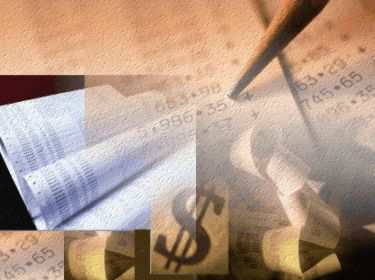
Accounts are required each year for tax and financial control purposes with preset dates by which those accounting records must be submitted and penalties for failure to deliver on time.
While in the UK self employed business can use its own accounting period the tax position can become more complex if the accounts use a basis period rather than the standard financial tax year.
Self employed business in the UK is required to produce a set of financial accounts for a 12 month trading period. The format of the accounts is the personal decision of the proprietor and can be a full set of annual accounts including profit and loss account and balance sheet including using control accounts and cash and bank records and the self assessment tax return.
An appropriate accounting system for many self employed business would not be to prepare a full set of annual accounts but instead to prepare a simple income and expenditure account. Preparing an income and expenditure account allows a much simpler accounting or bookkeeping system where simple accounting software can be used.
The objective of any bookkeeping software being to maintain accurate financial records and produce the accounting records and totals required to complete the inland revenue self assessment tax return each year. Financial control is very important and the bookkeeping software should also produce regular financial statements showing the profit and loss of the business throughout the accounting trading periods.
The financial tax year varies depending upon which country business is conducted. In the US accounts are prepared during an accounting period from 1 January to 31 December each year. In the UK the standard financial year adopted by the inland revenue is from 6 April each year to the 5 April the following year.
In the UK tax rules are set for each financial year and by adopting the standard tax year a small business can benefit by preparing the financial accounts under a single set of tax rules and preparing the self assessment tax return accordingly. Adopting a different financial period involves straddling the official tax year and more than one set of tax rules might be applicable to the tax calculation resulting from the net profit being declared.
After choosing the April to April financial tax year accounts are required to be submitted by the submission deadline of 31 January the following year. Earlier submission is recommended as by submitting the final accounts and tax returns online by 31 October each year the inland revenue will calculate the income tax and national insurance payable.
When a self employed business has been in business for two or three years and has chosen a different 12 month accounting period to the financial tax year the 12 month tax is calculated according to a basis period. Up until that point the accounts may be subject to apportionment to calculate the tax due.
The basis period under which the business tax is calculated is the 12 month accounting period ending in the specific tax year. A business which has a 12 month trading period ending 31 December 2007 would be taxed under the basis period 2007 to 2008 being the basis period 6 April 2007 to 5 April 2008. The same rules apply if the accounting periods are shorter or longer than the standard 12 month period.
If the accounting date is changed by a sole trader the inland revenue are informed of the change on the self assessment tax return and the reasons for the change. If as a result the self assessment tax return arrives late the tax will be assessed on the previous basis period.
Changing an accounting date that overlaps two basis years results in the business being taxed twice for the same accounting profit as the business would be taxed under both basis years. The extra tax paid can be highly unwelcome but can be reclaimed at a later date through the self employed tax return.
The penalty for late submission of the self assessment tax return in the UK is 100 pounds and interest is also charged on any outstanding income tax and national insurance from the first day after submission was due.
 Terry Cartwright qualified as a Chartered Management Accountant and Chartered Company Secretary in 1971. A successful business career followed as Head of Finance for major companies in the UK and several consultancy appointments. In 2006 he created DIY Accounting producing Accounting Software for self employed and small companies that use simple accounts spreadsheets to automate tax returns.
Terry Cartwright qualified as a Chartered Management Accountant and Chartered Company Secretary in 1971. A successful business career followed as Head of Finance for major companies in the UK and several consultancy appointments. In 2006 he created DIY Accounting producing Accounting Software for self employed and small companies that use simple accounts spreadsheets to automate tax returns.